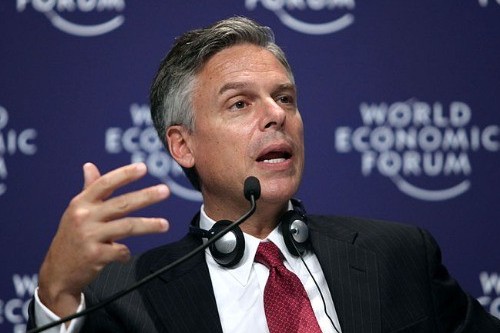
If the Sochi Olympics are green, then this logo is compelling to look at.Like a downhill skier that crashes right out of the gate, the Sochi 2014 Organizing Committee has a lot of catching up to do if it wants to earn a gold medal for “the greenest Olympics.” World Wildlife Fund Russia and Greenpeace Russia resigned from the Games’ advisory committee last year and recently boycotted a visit of U.N. Environment Program officials who were to inspect the progress, saying, “We do not want to be part of a green PR for the Olympic projects.”
What are these NGOs so upset about? Well, dumping, logging, pipelines, and a lack of transparency, to name a few. The main watchdog, Environmental Watch on North Caucasus (EWNC), sends weekly email updates with headlines like these:
- South Stream pipeline to cut through five protected areas
- Russian Railways destroyed clear mountain river in the national park with construction waste
- Illegal Olympic waste dump threatens Sochi’s national park
- The Sochi national park will be cut for the Sochi 2014 Olympics
- Olympic gas pipeline spill is continuing in Sochi National Park
The impacts on the treasured Mzymta River and its valley, plus the cutting of thousands of hectares of protected forests — whose trees include at least two Red List tree species — have these activists hopping mad. Suren Gazaryan of EWNC confirmed this cutting to me by email, saying “It is clear that coastal lands with relict pine forests will be developed first. Two species of pine, which are main constituents of these forests, are protected under the Russian Forest Code and the Red List.”
Every Olympics has its burden of impacts and truly, every one is a minor catastrophe. Is Sochi so much worse? The impacts to date seem to indicate that it could be. And worse, news that organizers are planning a million dollar PR center for the Olympics using funds budgeted for environmental protection suggests a greenwash.
Perhaps Sochi’s biggest challenge will come from the heavens: It’s another temperate maritime city like Vancouver — where snow had to be trucked and airlifted in for the ski events in 2010 — and adequate snow cover will be a challenge. As a climate scientist said last year, “I rolled my eyes when they picked a city on the Black Sea,” said Simon Donner. “I’m pretty certain it never snows in the city. They grow palm trees there.”
Who knows how much warmer the temperatures could be for Sochi 2014, thanks to humanity’s continual carbon-loading of the atmosphere over the next three years?
Concerns about green ski runs aside, the International Olympic Committee and U.N. Environment Program officials need to begin taking seriously the bigger on-the-ground impacts being documented by EWNC. Never mind 2014, the world is already watching.




